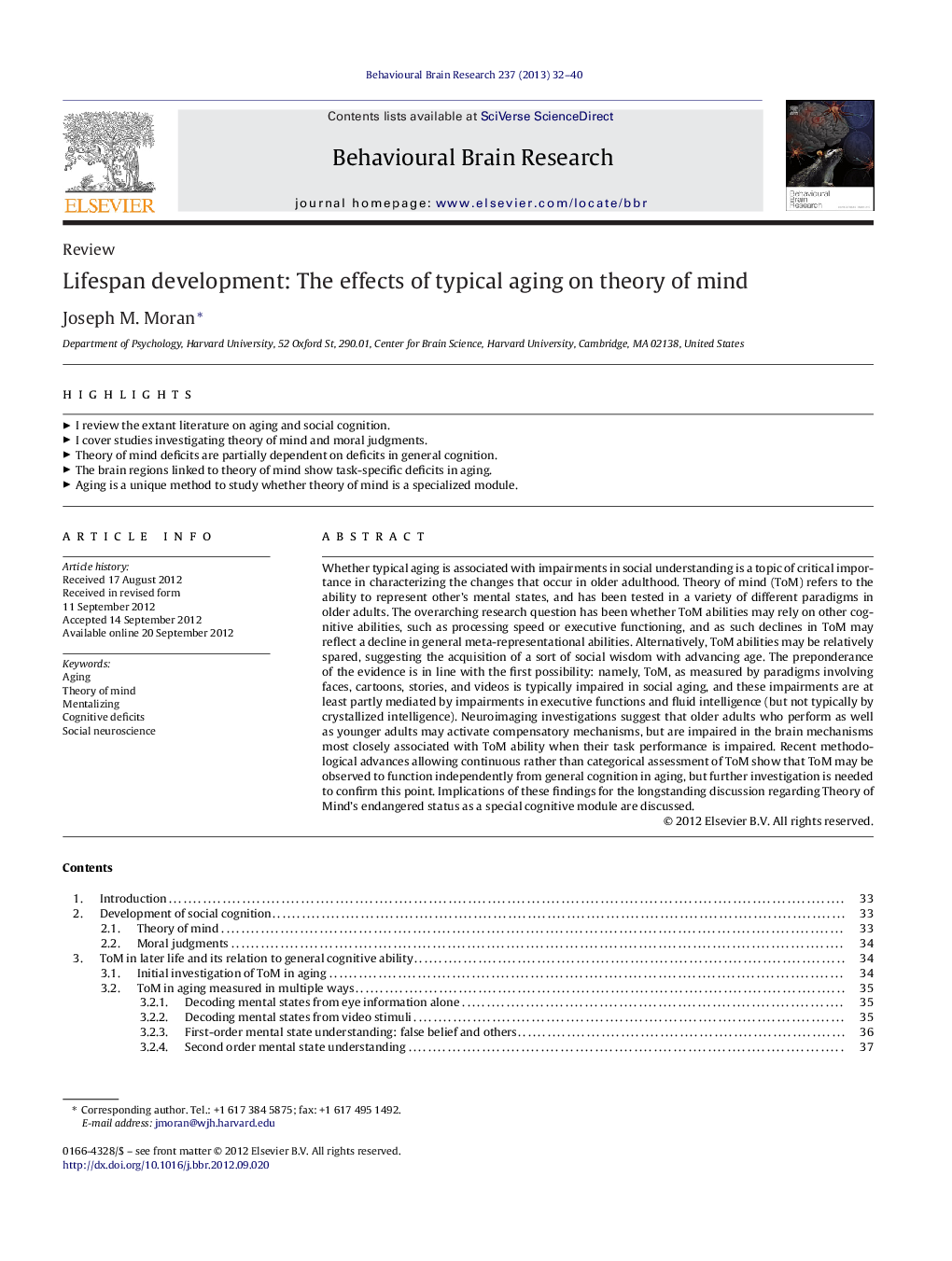| Article ID | Journal | Published Year | Pages | File Type |
|---|---|---|---|---|
| 6259299 | Behavioural Brain Research | 2013 | 9 Pages |
Whether typical aging is associated with impairments in social understanding is a topic of critical importance in characterizing the changes that occur in older adulthood. Theory of mind (ToM) refers to the ability to represent other's mental states, and has been tested in a variety of different paradigms in older adults. The overarching research question has been whether ToM abilities may rely on other cognitive abilities, such as processing speed or executive functioning, and as such declines in ToM may reflect a decline in general meta-representational abilities. Alternatively, ToM abilities may be relatively spared, suggesting the acquisition of a sort of social wisdom with advancing age. The preponderance of the evidence is in line with the first possibility: namely, ToM, as measured by paradigms involving faces, cartoons, stories, and videos is typically impaired in social aging, and these impairments are at least partly mediated by impairments in executive functions and fluid intelligence (but not typically by crystallized intelligence). Neuroimaging investigations suggest that older adults who perform as well as younger adults may activate compensatory mechanisms, but are impaired in the brain mechanisms most closely associated with ToM ability when their task performance is impaired. Recent methodological advances allowing continuous rather than categorical assessment of ToM show that ToM may be observed to function independently from general cognition in aging, but further investigation is needed to confirm this point. Implications of these findings for the longstanding discussion regarding Theory of Mind's endangered status as a special cognitive module are discussed.
⺠I review the extant literature on aging and social cognition. ⺠I cover studies investigating theory of mind and moral judgments. ⺠Theory of mind deficits are partially dependent on deficits in general cognition. ⺠The brain regions linked to theory of mind show task-specific deficits in aging. ⺠Aging is a unique method to study whether theory of mind is a specialized module.
